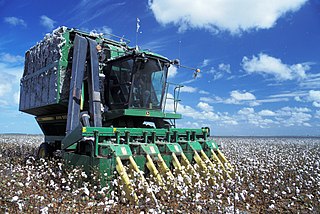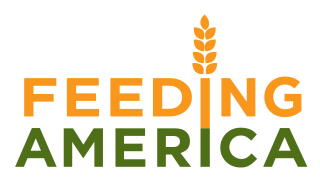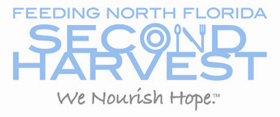
Gleaning Network is the most widespread and volunteer-oriented of the Society of St. Andrew's ministries.

Gleaning Network is the most widespread and volunteer-oriented of the Society of St. Andrew's ministries.
Gleaning is the traditional Biblical practice of gathering crops that would otherwise be left in the fields to rot or be plowed under after harvest. Because the food is unmarketable, usually due to cosmetic reasons, some growers allow crews of gleaners to pick what is left after harvest to donate to those who are needy. It is also often more cost-effective for farmers to have their crops gleaned than to have paid pickers go back through the fields for the missed produce.
The Society of St. Andrew's Gleaning Network coordinates volunteers, growers, and distribution agencies to salvage food for the needy. Tens of thousands of volunteers from churches, synagogues, scout troops, senior citizen groups, and other organizations participate each year in Gleaning Network activities all across the country. Each year, tens of millions of pounds of produce are salvaged and given to the poor at no cost to them.
Gleaners are people of all ages and income levels who give their time and energy to this process. Within 48 hours of picking the produce, hungry Americans are usually eating the gleaned food. Each year, about 30,000 people join the Gleaning Network in salvaging over 15 million pounds of fresh, nutritious food for their hungry neighbors. The Society of St. Andrew has staff Gleaning Network coordinators in several states as well as volunteer coordinators nationwide. Volunteering can take place over a single morning or for many years of service, and is seen as a practical, humanitarian response to the problem of hunger. [1]

In politics, humanitarian aid, and the social sciences, hunger is defined as a condition in which a person cannot eat sufficient food to meet basic nutritional needs for a sustained period. In the field of hunger relief, the term hunger is used in a sense that goes beyond the common desire for food that all humans experience. The most extreme form of hunger, when malnutrition is widespread, and when people have started dying of starvation through lack of access to sufficient, nutritious food, leads to a declaration of famine.

Gleaning is the act of collecting leftover crops from farmers' fields after they have been commercially harvested or on fields where it is not economically profitable to harvest. It is a practice described in the Hebrew Bible that became a legally enforced entitlement of the poor in a number of Christian kingdoms. Modern day dumpster diving is seen as a similar form of food recovery.

A food bank is a non-profit, charitable organization that distributes food to those who have difficulty purchasing enough to avoid hunger.

Mechanised agriculture is the process of using agricultural machinery to mechanise the work of agriculture, greatly increasing farm worker productivity. In modern times, powered machinery has replaced many farm jobs formerly carried out by manual labour or by working animals such as oxen, horses and mules.

Feeding America is a United States–based nonprofit organization that is a nationwide network of more than 200 food banks that feed more than 46 million people through food pantries, soup kitchens, shelters, and other community-based agencies. Forbes ranks it as the second largest U.S. charity by revenue. Feeding America was known as America's Second Harvest until August 31, 2008.

Food rescue, also called food recovery or food salvage, is the practice of gleaning edible food that would otherwise go to waste from places such as restaurants, grocery stores, produce markets, or dining facilities and distributing it to local emergency food programs.

Second Harvest is Canada's largest food rescue charitable organization with a dual mission of environmental protection and hunger relief. They recover and redistribute perishable, nutritious, unsold food before it becomes waste to a broad network of 1200 social service organizations. Their service helps nourish people through school programs, seniors' centres, homeless shelters, food banks, and regional food hubs. In 34 years, Second Harvest has rescued over 155 million pounds of healthy food, preventing 192 million pounds of greenhouse gases from entering the atmosphere.
Ag Against Hunger is a non-profit organization based in Salinas, California that collects surplus produce from Monterey, San Benito and Santa Cruz County growers on the central coast of California. This fresh produce is then distributed to food banks throughout the west coast of the United States.
The Society of St. Andrew (SoSA) is a grassroots, faith-based, hunger relief nonprofit working with all denominations to bridge the hunger gap between 96 billion pounds of food wasted every year in the United States and the nearly 40 million Americans who live in poverty. SoSA relies on support from donors, volunteers and farmers as they glean nutritious excess produce from farmers' fields and orchards after harvest and deliver it to people in need across the United States. SoSA provides nutritious, healthy produce through programs such as the Potato Project, the Gleaning Network, Harvest of Hope, and the Seed Potato Project.
Potato Project is a program of the Society of St. Andrew (SoSA) in the United States that diverts potatoes rejected by food processors to the poor.
Gleaners, Inc., also known as The Volunteers Of Gleaners, is a Jackson, Mississippi-based non-profit organization founded by Gloria Martinson in 1986. It salvages food that otherwise would go to waste and redistributes it to other non-profit shelters in the metro area. Claude Mapp is the current CEO and Nancy Willis is the Director of Operations.

Leket Israel, The National Food Bank, a registered nonprofit Israel-based charity, is the leading food rescue organization in Israel, serving 175,000+ needy people weekly. Leket Israel rescues surplus agricultural produce and collects excess cooked meals for redistribution to the needy throughout Israel via its network of 200+ nonprofit organization (NPO) partners.
International Disaster Emergency Service (IDES) is a 501c3 non-profit organization based in Noblesville, Indiana, United States that seeks to meet the physical and spiritual needs of suffering people around the world in the name of Jesus Christ. The organization is primarily funded by Christian Churches and Churches of Christ. Much of its relief effort is done through local churches and missionaries already in place in the countries needing assistance.
Hunger Task Force, Inc. is a non-profit, anti-hunger public policy organization in Milwaukee, Wisconsin. Hunger Task Force works to end hunger in Milwaukee County, Wisconsin by providing direct food delivery services, and works to end future hunger by advocating for fair and responsible administration of federal nutrition assistance programs.
Philabundance is a non-profit food bank that serves the Philadelphia and Delaware Valley region of Pennsylvania, United States. It is the largest such organization in the region.

Second Harvest North Florida (SHNF) is a 501(c)(3) non-profit organization located in Jacksonville, Florida that performs food rescue and redistribution to partner agencies in one quarter of Florida's 67 counties. The charitable organization has been active for over 30 years.
The Agricultural Development and Marketing Corporation, usually known as ADMARC, was formed in Malawi in 1971 as a Government-owned corporation or parastatal to promote the Malawian economy by increasing the volume and quality of its agricultural exports, to develop new foreign markets for the consumption of Malawian agricultural produce and to support Malawi's farmers. it was the successor of a number of separate marketing boards of the colonial-era and early post-colonial times, whose functions were as much about controlling African smallholders or generating government revenues as in promoting agricultural development. At its foundation, ADMARC was given the power to finance the economic development of any public or private organisation, agricultural or not.
Iskashitaa Refugee Network is a grass roots organization based in Tucson, Arizona that partners with volunteers and local organizations to provide various supplemental services to refugees to complement those offered by resettlement agencies. The organization was founded by Dr. Barbara Eiswerth, who holds a Ph.D. in Arid Lands Resource Management, and is currently directed by Eiswerth. Iskashitaa has a number of programs designed to empower refugees and unite them with staff and volunteers from the community. A primary component of these programs is gleaning, or harvesting unwanted produce from property owners and commercial farmers. Over Iskashitaa's ten years of existence, gleaning efforts have grown from harvesting a few thousand pounds of fruit each year to over 100,000 pounds annually of fruit, nuts, and vegetables: a cumulative one million servings of local produce.
Forgotten Harvest is a non-profit food rescue organization that collects food that would otherwise go to waste and delivers it free of charge to organizations feeding the hungry in Metro Detroit. In 2015, the nonprofit distributed more than 40 million pounds of food to more than 260 emergency food providers.

La Soupe is a Cincinnati, Ohio, nonprofit organization that uses discarded food to produce meals and delivers them to other nonprofit agencies for distribution to people experiencing food insecurity.